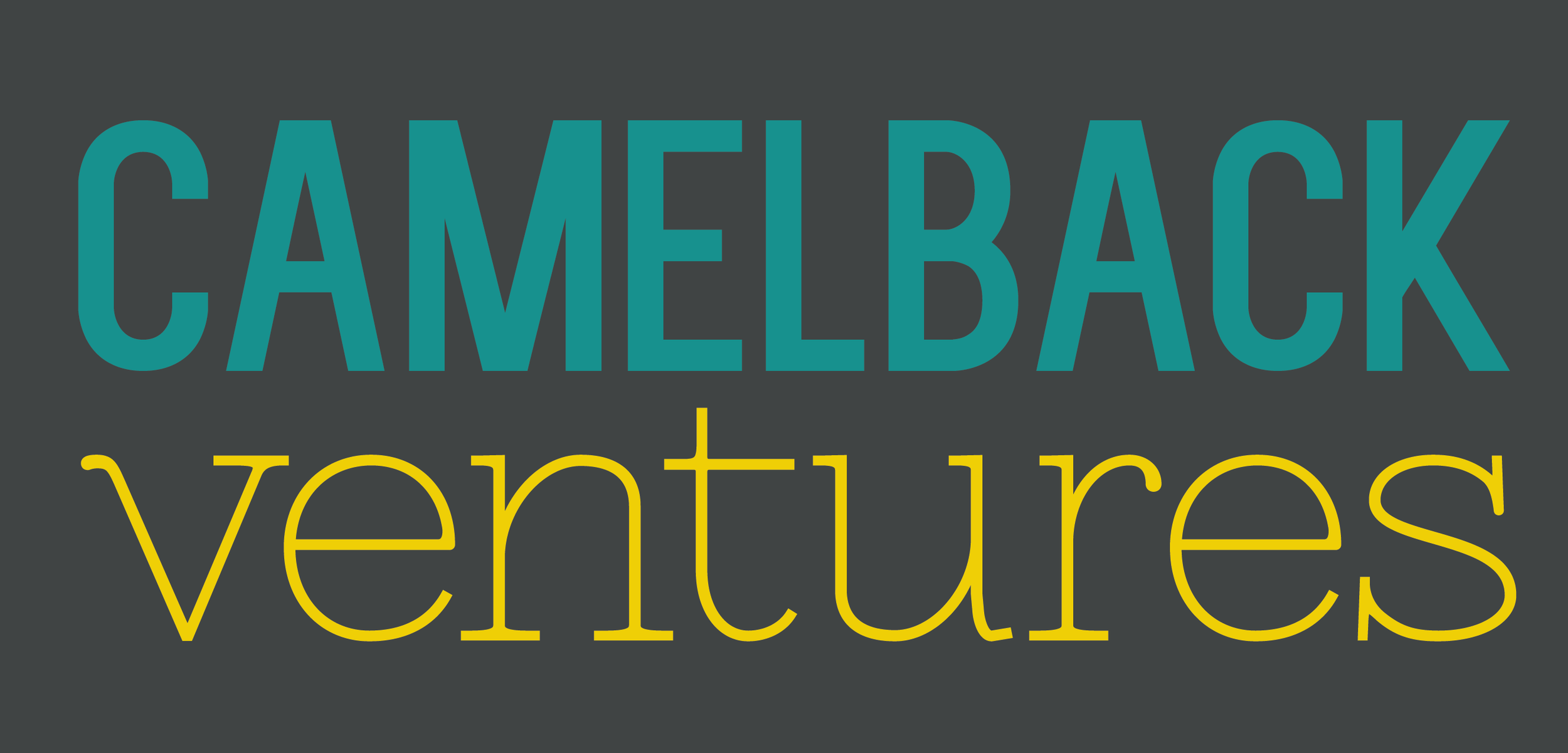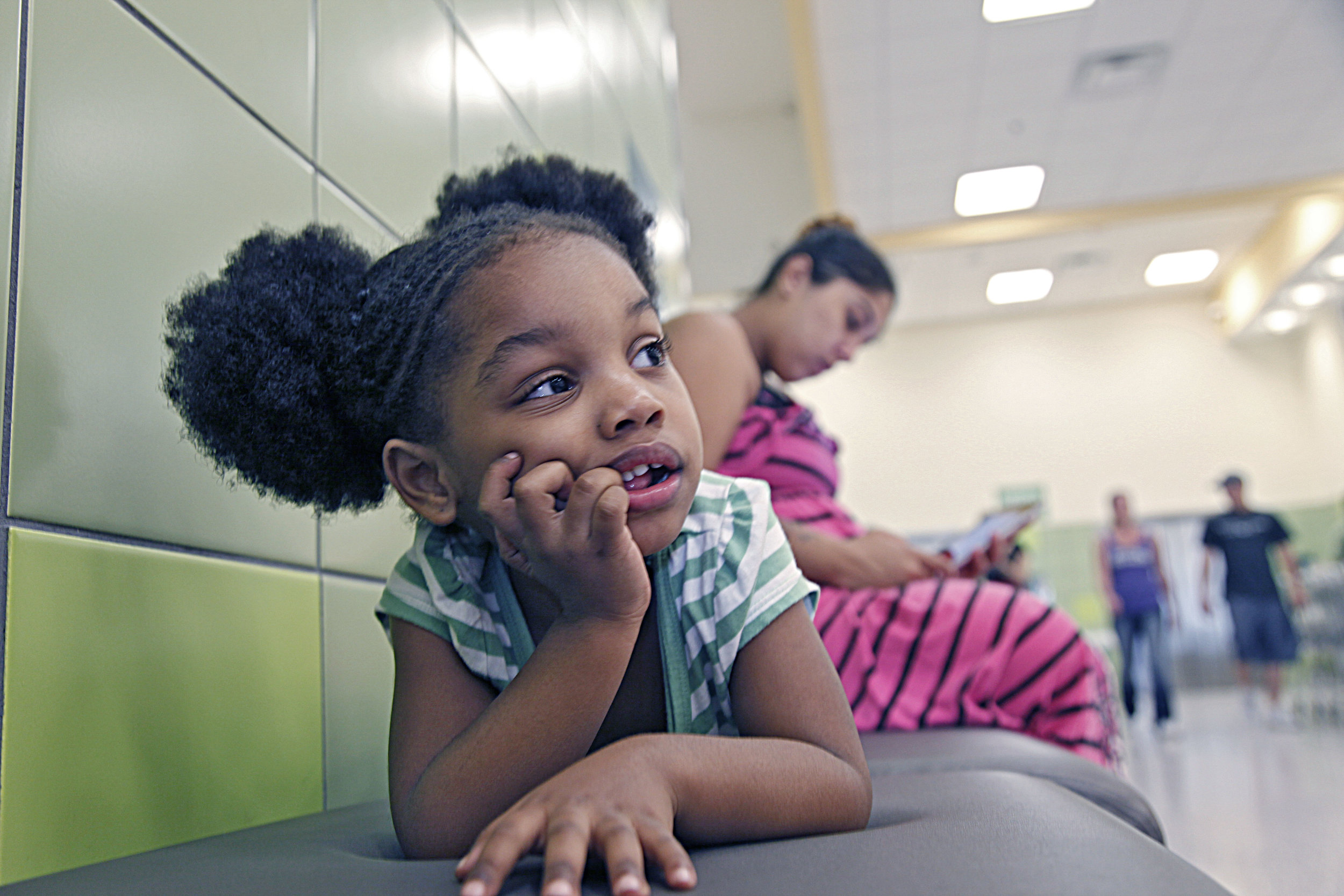Miami-Dade: 4th largest school district, 92% students of color. Why aren't more people talking about it?
This piece is a part of Camelback's Ruthless for Good series, sharing different ways that individuals embody the spirit of our manifesto and what they fight for.
Yannell Selman is a 2017 Camelback Fellow and founder of P.S. 305 in Miami.
In college, I studied political science and philosophy, researching political theories and learning about how power manifests itself in institutions. It was interesting and abstract work. One day, I was working on a study abroad grant application to explore these conceptual theories further, live-streaming CNN while I worked. A breaking news report came on, the anchors got tense, and cut to a school -- my high school in Miami.
A boy from my high school had been stabbed and killed, at the school, at 7am.
My phone started to ring, from my family, from friends, from others I knew still learning and working in my high school. In that moment, I felt very far away from home, and the community that had given me access to such a great college education. While it might be interesting to explore institutions at a theoretical level, I felt compelled to use my education to start doing the work, the actual work, of making these institutions more just.
I was obsessed with this thought: how can I use my privilege and my experiences to make a positive impact and prevent our school system from continuing to so monumentally fail students?
My path to education began like many others, as a child of immigrant parents who came to America, seeking a better life for their family. My parents immigrated from Cuba to Miami, and I was born and raised in a Cuban-American community. That was an incredible experience. Later on, I came to realize that while Miami is very diverse, it’s not very inclusive -- communities are still heavily segregated. My world was 100% Cuban-American, and there were disadvantageous and beautiful elements of that.
Growing up, I thought I had a good educational experience. I was tracked into advanced classes, got all the proverbial gold stars, and graduated at the top of my class. I got a full scholarship to Northwestern, and only then did I realize how totally unprepared I was for college, despite my top marks. I felt I was supposed to be a success story, the first generation, first girl to attend a university from my family-- but I was struggling. It was hard to compete with other students who had had a more rigorous education in high school, who had a knowledge and skill base far beyond what I was prepared for. The system felt broken and unfair. How could I have gotten such perfect grades and still be so far behind? I realized that the system simply set low expectations for my community. This part of my story is not unique; data shows that Black and Brown students without a quality, equal secondary education to their peers struggle to close the gap at elite institutions.
This is what led me to think about education as an institution - a broken, unfair national system - and it’s what led me to spend time in the often abstract world of political theory.
But that day, watching the news of a murder at my high school...I felt my life post-college had to be rooted in tangible education work. After countless officer hours and all-nighters, I ended up excelling at Northwestern, and joined Teach for America upon graduation and I taught second grade in the Bay Area.
To put it simply, I had an amazing experience teaching. I taught 7-year-olds; they were beautiful, brilliant kids with loving families. At that age, kids are curious and optimistic, and embrace school and all it has to offer. But the system was disastrous, and I was reminded of it every day. While I was there, 3 out of 5 school board members were under investigation by the FBI. We had 4 principals in one school year. The retention rate of teachers was abysmal from year to year. As a second year teacher, I was one of the more senior educators -- and I knew that wasn’t what was right for my students. Our kids and families deserved more than that.
So I started getting active with the school board elections, and through that, realized I wanted to get back into system-level discourse. Here, I found a way to merge my interest in institutions from college with tangible, real-world work. I started getting into community organizing, working with charter schools.
Through organizing, I saw how people most impacted by educational injustice could build power to combat those injustices.
All this time though, I was still thinking about that boy who had been murdered at school at 7am. That was my city, my school, and I felt (and feel) some ownership. While I felt I was making a difference in California and learning a lot, I couldn’t shake the need to return to Miami. It crystallized when my five year old sister started in preschool. I visited my hometown more and more, started doing school tours in Miami, doing volunteer work. During one tour, I saw a school that was almost 100% white Cuban kids like me -- with a Black housing project just on the other side of the basketball court fence. The unjustness, the segregation, the lack of innovative work astounded me, and I knew my place was here, in Miami, to try and make the system itself more equitable. We need better practices; I could not let the status quo perpetuate.
This year alone, I have done 1:1s with over 400 people in Miami.
In every single meeting I’ve had with parents, teachers, and community members, everyone is on the same page: we all agree the system here is broken. There is a culture of fear. Schools are failing. But the official story is that there’s no problem: according to the public narrative, “every school is a good school” -- and we know that’s just not true. Schools are getting high marks, but the bar is very low for our kids, and substantive academic gains are still unrealized.
This is not a theoretical problem. It reflects the lives of children, 92% of which are students of color. Miami-Dade is the 4th biggest school district in the country. It serves 356,000 students. That includes 110,272 Latinx and 50,830 Black students that cannot read on grade level. The national education conversation ignores Miami, and we’re way behind. This is a huge school district with the power to pick hundreds of thousands of students, most of whom are students of color and largely low-income. It’s such a missed opportunity.
Alone, no one feels equipped to make a difference. I felt that, given my experiences, I could bring people together and harness the power of communities to build a better city. This work has to come from the people, to make Miami a new urban frontier of education reform. I started P.S. 305 about two years ago, and already, I see the work making a difference.
I want to highlight one parent advocate: Jackie*, who has 8 children, none of whom graduated high school. Her youngest, Jason*, is still in elementary school, and through her community advocacy work, she was able to get him into a “school of choice.” Jason is on track to go to college; he’s in third grade, and he’s not even sweating the idea of high school -- his sights are already on post-secondary. If Jason goes to college, he can break the cycle of generational poverty in that family. One school did this. How can we create more schools, more opportunities to change the lives of students like Jason? Like the student at my high school who died one school morning?
For me, it’s leadership through social entrepreneurship, and if you are reading this, you are probably considering this path as well, and even thinking about applying to the Camelback Fellowship. Let me say this about social entrepreneurship: it is hard. Expect uncertainty. Expect it to be the hardest job that you will have. Expect no one else to get what your life will be like. Embrace it. Get comfortable with that ever-present anxiety. But remember that people have done this before, they’ll do this after you. People no smarter or more valid than you are doing this, too. In schools and in jobs, there are grades, reports, pats on the back and quarterly check-ins. As an entrepreneur, there’s none of that -- and you’re going to fail a million times.
There is an overwhelming sense in entrepreneurship that is is hard -- it will be filled with anxiety, lack of structure, zero clarity.
The Ruthless for Good manifesto reminds me of the core why. Not just the why of why I do this difficult work. But why me? Why do I feel that I am uniquely positioned? Why do I believe in myself? Why do I still try, even when the losses outweigh the wins?
Because I do hold these values, this sense of integrity and determination about my work. I do believe I am worthy to do this work. For entrepreneurs of color, there are so many naysayers -- people telling you that you aren’t “ready” or “don’t have enough experience.” But Camelback doesn’t say that. Camelback believed that I, more than anyone else, was ready to tackle the Miami education system head-on. After my Camelback Fellowship experience, I was positioned for more grants and opportunities, was ready to hire new staff members. Camelback believes in its other Fellows too, amazing people from my cohort that I saw tirelessly pursuing their journey alongside me.
I am ruthless for Miami, for communities of color that are systemically disempowered, for Jackie and her son Jason, for hundreds of thousands of students who deserve better.
If you truly are ruthless for something, don’t hesitate.
*Names changed for privacy.
Learn more about Yannell's work with P.S. 305.
Our application for the Camelback Fellowship has opened -- if you are developing an organization focusing on community organizing and/or Latinx populations like Yannell, we want to hear from you and hope you consider applying.



